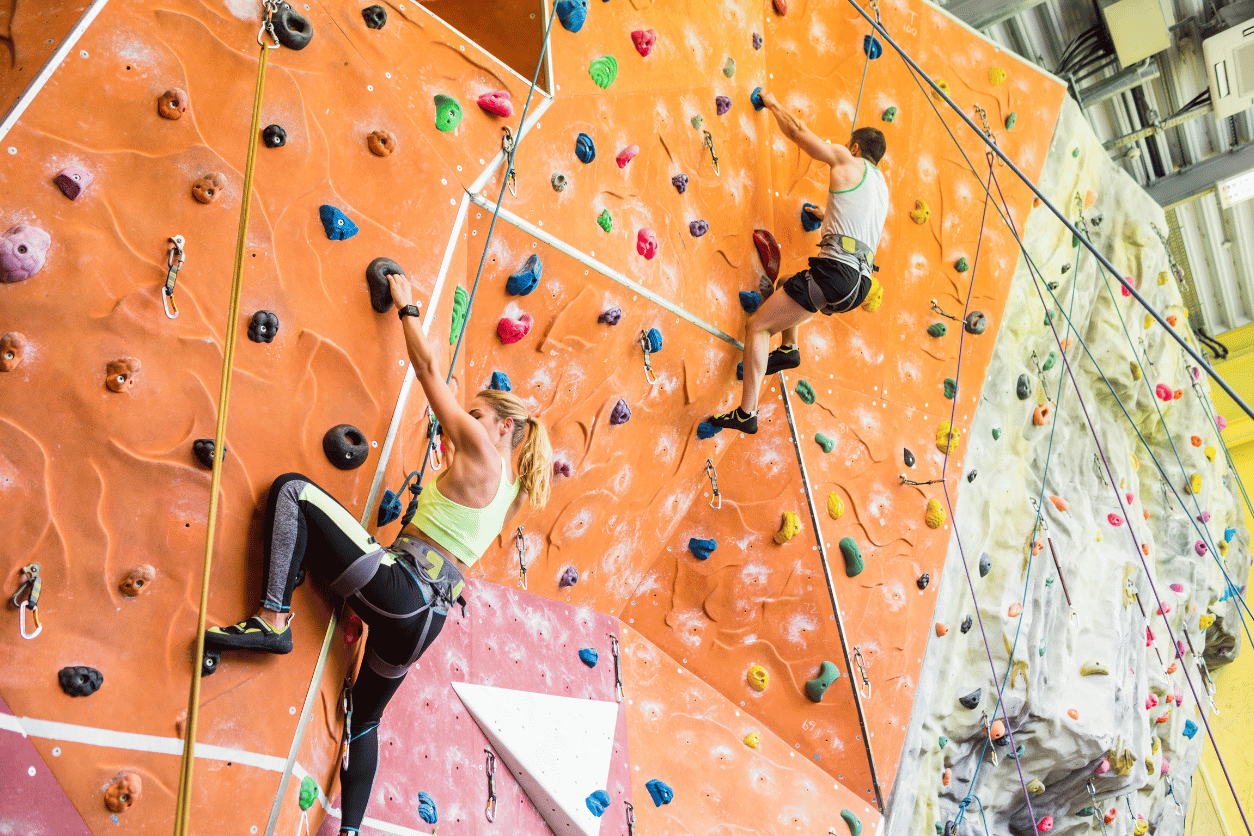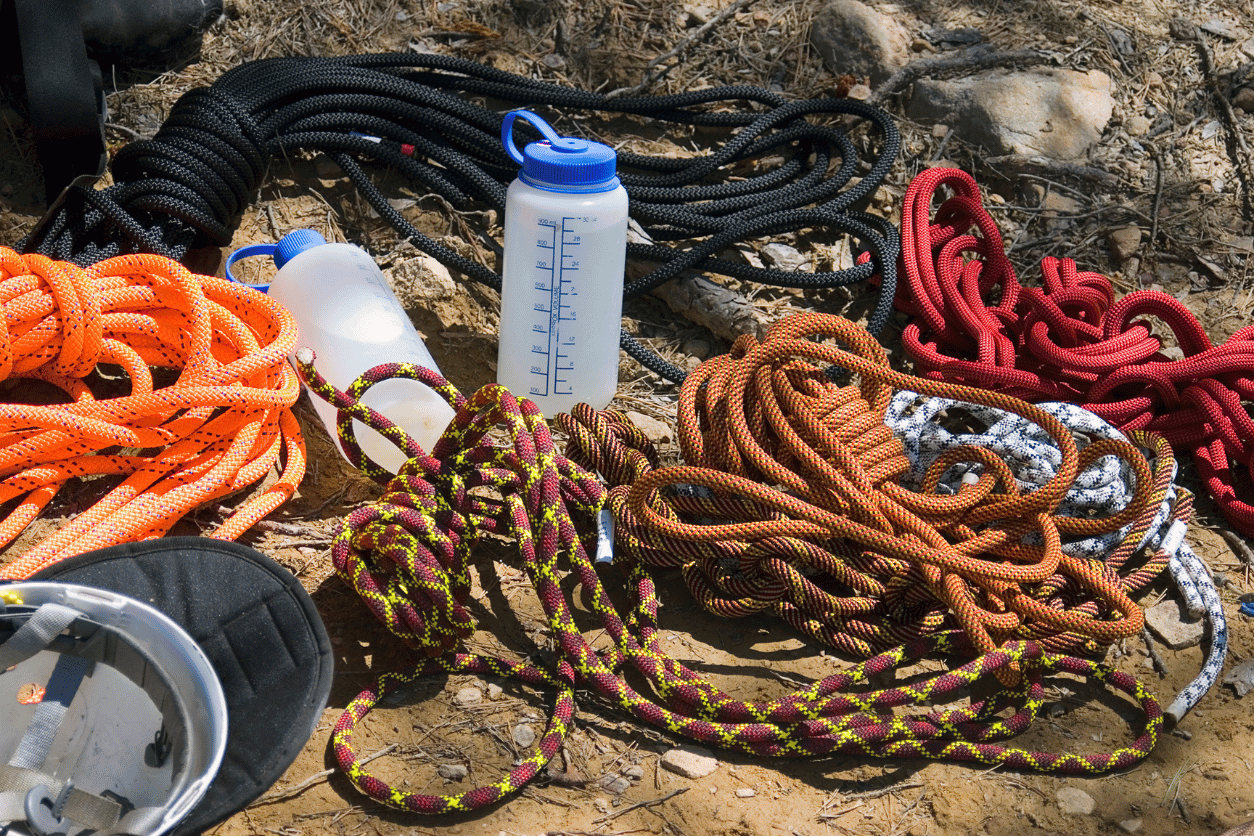Rock Climbing for Beginners: Building Confidence and Skills

There’s something exhilarating about standing at the base of a towering rock face, knowing that you’re about to take on a challenge that requires both mental and physical strength. Rock climbing is more than just a sport—it’s an adventure that pushes you to your limits and rewards you with a sense of accomplishment unlike anything else. If you’re new to rock climbing, the idea of scaling a wall might seem intimidating, but with the right approach, you can build the confidence and skills needed to enjoy this thrilling activity.
Let’s explore the fundamentals of rock climbing for beginners, from understanding the basics to building the mindset that will help you conquer your fears and embrace the climb.
1. Understanding the Basics: Types of Rock Climbing
Before you hit the rock face, it’s important to familiarize yourself with the different types of rock climbing. Each type offers a unique experience and requires different techniques and gear.
- Indoor Climbing: A great starting point for beginners, indoor climbing takes place on artificial walls with holds of varying shapes and sizes. It’s a controlled environment where you can learn the basics of climbing, such as belaying, footwork, and grip.
- Bouldering: This type of climbing involves short, challenging routes (called problems) on low walls or boulders, typically without the use of ropes. Bouldering focuses on strength, technique, and problem-solving, making it an excellent way to develop your climbing skills.
- Top-Rope Climbing: In this form of climbing, a rope is anchored at the top of the route, providing safety as you climb. A partner, called a belayer, manages the rope and ensures that you’re secure. Top-rope climbing is ideal for beginners, offering a safe way to practice and build confidence.
- Sport Climbing: This involves climbing routes that have pre-placed bolts for protection. As you ascend, you clip your rope into these bolts to protect against falls. Sport climbing requires more advanced skills and is typically pursued once you’ve gained some experience.
- Traditional (Trad) Climbing: In trad climbing, you place your own gear (like cams and nuts) into cracks in the rock to protect yourself as you climb. This type of climbing requires significant skill, knowledge, and experience, making it best suited for those who have developed a solid climbing foundation.
2. Gear Up: Essential Equipment for Beginners

Having the right gear is crucial for both safety and performance in rock climbing. Here’s a list of essential items you’ll need to get started:
- Climbing Shoes: These are designed to fit snugly and provide the grip you need on the rock. Look for shoes that are comfortable but tight enough to allow precise footwork.
- Harness: A harness secures you to the rope and is essential for any type of climbing involving ropes. Make sure your harness fits well and is properly adjusted before climbing.
- Chalk and Chalk Bag: Chalk helps keep your hands dry and improves your grip on holds. A chalk bag attaches to your harness, keeping chalk easily accessible during your climb.
- Belay Device and Carabiner: If you’re climbing with a partner, you’ll need a belay device to manage the rope. A locking carabiner is used to attach the belay device to your harness.
- Helmet: Safety first! A climbing helmet protects your head from falling debris and accidental bumps.
- Climbing Rope: For top-rope and sport climbing, you’ll need a dynamic climbing rope designed to absorb the impact of falls. Ropes vary in length and thickness, so choose one appropriate for your climbing style.
3. Developing Basic Techniques: The Foundation of Climbing
Building a strong foundation of basic climbing techniques will set you up for success as you progress. Here are a few key techniques to focus on as a beginner:
- Footwork: Good footwork is essential in rock climbing. Focus on placing your feet precisely on the holds, using the edges and toes of your shoes for balance and stability. Practice shifting your weight over your feet to maintain control and conserve energy.
- Grip and Handholds: Learn to grip holds with an open hand rather than relying on your fingers alone. This technique, called crimping, reduces strain on your tendons and improves your endurance. Experiment with different hand positions to find what works best for each hold.
- Body Positioning: Keep your body close to the wall to maintain balance and reduce the effort required to hold on. Use your legs to push yourself upward, saving your arm strength for more challenging moves.
- Breathing and Relaxation: Stay calm and focused by practicing deep, steady breathing. Relax your muscles between moves to avoid fatigue and keep your mind clear.
4. Building Confidence: Overcoming Fear and Mental Barriers
One of the biggest challenges for beginners is overcoming the fear of falling or failing. Building confidence in rock climbing is as much about mindset as it is about skill. Here are some tips to help you develop the mental strength needed to push through your fears:
- Start Small: Begin with easy routes that match your skill level. As you gain experience and confidence, gradually challenge yourself with more difficult climbs.
- Trust Your Gear: Understanding and trusting your gear is key to feeling safe while climbing. Take time to learn how your harness, rope, and belay system work. Knowing that your gear will catch you if you fall can help alleviate fear.
- Climb with a Partner: Climbing with a supportive partner can boost your confidence. They can offer encouragement, help you problem-solve difficult sections, and provide a sense of security.
- Visualize Success: Before you start a climb, take a moment to visualize yourself completing it. Picture each move in your mind, and focus on the feeling of reaching the top. Visualization can help reduce anxiety and prepare you mentally for the climb.
- Embrace Failure: Remember, every climber falls and every climber fails at some point. It’s part of the learning process. Embrace these moments as opportunities to learn and improve.
5. Practice, Patience, and Persistence: The Keys to Progress
Rock climbing is a skill that takes time to develop. Don’t be discouraged if you don’t see immediate progress. Consistent practice, combined with patience and persistence, will lead to improvement over time.
- Set Goals: Setting achievable goals can keep you motivated. Whether it’s completing a specific route, improving your footwork, or building endurance, having clear objectives will help you stay focused.
- Learn from Others: Climbing with more experienced climbers or taking a class can provide valuable insights and accelerate your learning. Don’t hesitate to ask for advice or tips from those who have more experience.
- Celebrate Small Wins: Every improvement, no matter how small, is worth celebrating. Recognizing your progress will keep you motivated and confident as you continue to develop your climbing skills.
Conclusion: Embrace the Journey
Rock climbing is more than just a physical challenge—it’s a journey of self-discovery and growth. As a beginner, building confidence and skills takes time, but the rewards are well worth the effort. Every climb you complete, every fear you conquer, and every skill you master will make you a stronger, more resilient climber.
So, gear up, take a deep breath, and start your climb. The rock face is waiting, and with each step, you’re not just moving upward—you’re growing, learning, and discovering the incredible things you’re capable of.
Your Adventure, Our Experience
At TheCampingList, our dedication to authenticity and reliability stems from our own adventures in the great outdoors. Our team, comprised of seasoned experts in hiking, camping, climbing, cycling, fishing, and hunting, rigorously tests every product and shares insights drawn from real experiences. This hands-on approach ensures our reviews and guides meet the highest standards of durability, functionality, and comfort. Moreover, our platform thrives on the rich contributions and feedback from our vibrant community of enthusiasts. We pride ourselves on delivering unbiased, educational content that empowers and informs your outdoor pursuits. Trust in TheCampingList for genuine advice and support, where we're all about enriching your journey, every step of the way.